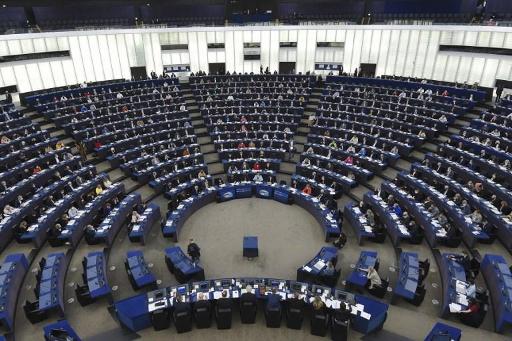MEPs approved their position on three key climate laws which make up a crucial part of the EU Green Deal on Wednesday afternoon. Just two weeks ago, the vote at the European Parliament had stalled as negotiations descended into infighting between political groupings.
On Wednesday at the Plenary Session in Brussels, the three largest groups in the European Parliament renegotiated a compromise and passed three key texts on Carbon Border Adjustment Mechanism, Emissions Trading System and Social Climate Fund(SCF),
Two weeks ago, left-leaning parties rejected the tabled proposal on the text, stating that the proposals were seen as not ambitious enough after being watered down by right-leaning parties.
Within a week, a compromise text was tabled with amendments supported by the European People's Party (EPP), the Social Democrats (S&D) and the Renew liberals. The Greens had also signalled on Wednesday morning that they would approve the new amendments.
The EU's flagship climate agenda aims to make the EU carbon neutral by 2050 and to reduce greenhouse gas emissions by 55% compared to 1990 levels. The aim is to combat climate change while also ensuring the protection of jobs and citizens.
What do these policies actually mean?
To achieve these goals, the EU aims to implement a Carbon Border Adjustment Mechanism (CBAM). As the continent grows greener, the worry is that producers may outsource carbon heavy production to third countries with less stringent rules. To counteract this move, the EU will require importers to buy carbon certificates to correspond to the price that would have been paid within the EU.
Related News
- EU Parliament votes against 'weakened' emissions trading system
- Climate activists superglue themselves to EU Commission entrance
- Belgian Greens advocate for exit from EU Energy Charter Treaty
The EU's Emissions Trading System (ETS) will set a limit of total greenhouse emissions, with the cap to be reduced over time so that total emissions fall. Within the cap, companies can buy emissions allowances, which they can trade with one another.
Meanwhile, the Social Climate Fund (SCF) focuses on people and is designed to counter costs that vulnerable consumers may face in the green energy transition, particularly in the buildings and transport sector.
The European Parliament is usually more progressive in its green policies than Member States. Once a resolution from the Commission has been passed in the European Parliament, it still needs to be approved by the Council, which is comprised of leaders of Member States. The Council is expected to determine their position on Tuesday.

